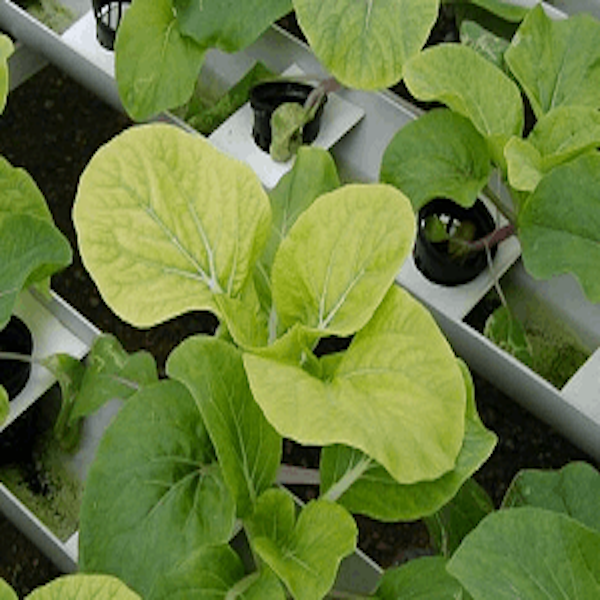What is the Function of Sulfur (S) in Plants?
•Posted on February 14 2020

In a past article about minerals in soil, we discussed proper soil nutrition and explained that plants take essential nutrients from the soil in order to thrive in their environment.
One of these nutrients — a macronutrient to be precise — is sulfur, which healthy plants take in larger amounts from the soil.
In this piece, we'll talk about what exactly sulfur does for plants and what to do in the event of a sulfur deficiency.
How Does Sulfur Affect Plant Growth?
Buy Organic Sulfur Powder Micronized
Sulfur supports several different plant functions, like the formation of enzymes. Sulfur is also a crucial part of the process that creates new proteins in plants, which affects growth and vitality.
Part of how sulfur interacts with plants involves being a catalyst for photosynthesis, which will be important to know when diagnosing a sulfur deficiency.
Why is Sulfur Important for Plants?
To review, healthy soil contains micronutrients and macronutrients that all contribute to plant growth in varying amounts. Sulfur, calcium, and magnesium make up a group called "secondary nutrients," which means that the quantity of each is vital to the life of a plant.
Sulfur is also an excellent soil conditioner — it helps lessen the salt content in the ground.

Even if a given plant can survive in areas where there's low sulfur in the soil, sulfur deficiency may cause the salinity of the soil to be high enough to impede healthy growth.
Healthy plants have a balance between the quantity of sulfur and the quantity of nitrogen. If you're using a nitrogen-rich, water soluble fertilizer, this may cause the comparative level of sulfur to drop below the optimal level.
How to Diagnose a Sulfur Deficiency in Plants

Imagine you go out into your garden to check on your prize tomatoes and you find that the leaves are turning yellow. Most people know this as a sign of a nitrogen deficiency.
You go out and buy a nitrogen-rich fertilizer to try and supplement what seems like a lack of this important nutrient in the soil, but even after treating the area around the tomato plants, the yellowing gets worse.
This is a sign of a sulfur deficiency. Remember how we said that sulfur plays a role in the production of chlorophyll and photosynthesis?
This means that a low level of sulfur in the soil will have effects similar to a nitrogen deficiency.
Strategies to Supplement Sulfur in Your Garden
There are a few different ways to add more sulfur in your garden:
Use mulch/manure/organic matter: If you suspect that more than just sulfur might be lower than optimal in your soil, there a few broad-spectrum treatments you can use to raise the levels micronutrients and macronutrients accessible to your plants. A treatment with rich mulch, manure, or other organic matter can boost the levels of most minerals.
Use sulfur powder: When drastic measures need to be taken, a fertilizer containing sulfur powder may be your best option. Rather than using a broad solution to take on a narrow challenge, sulfur powder aims at the specific deficiency at-hand.
Greenway Biotech's fertilizers are free of heavy metals ensuring that plants will be able to access the nutrients contained in it as easily as possible.
Want to learn more about the possibilities with fertilizers from Greenway Biotech? Shop sulfur powder and other, natural gardening products today.
Related Posts:
- What's the Function of Nitrogen (N) in Plants?
- What's the Function of Phosphorus (P) in Plants?
- What's the Function of Potassium (K) in Plants?


Comments
0 Comments
Leave a Comment